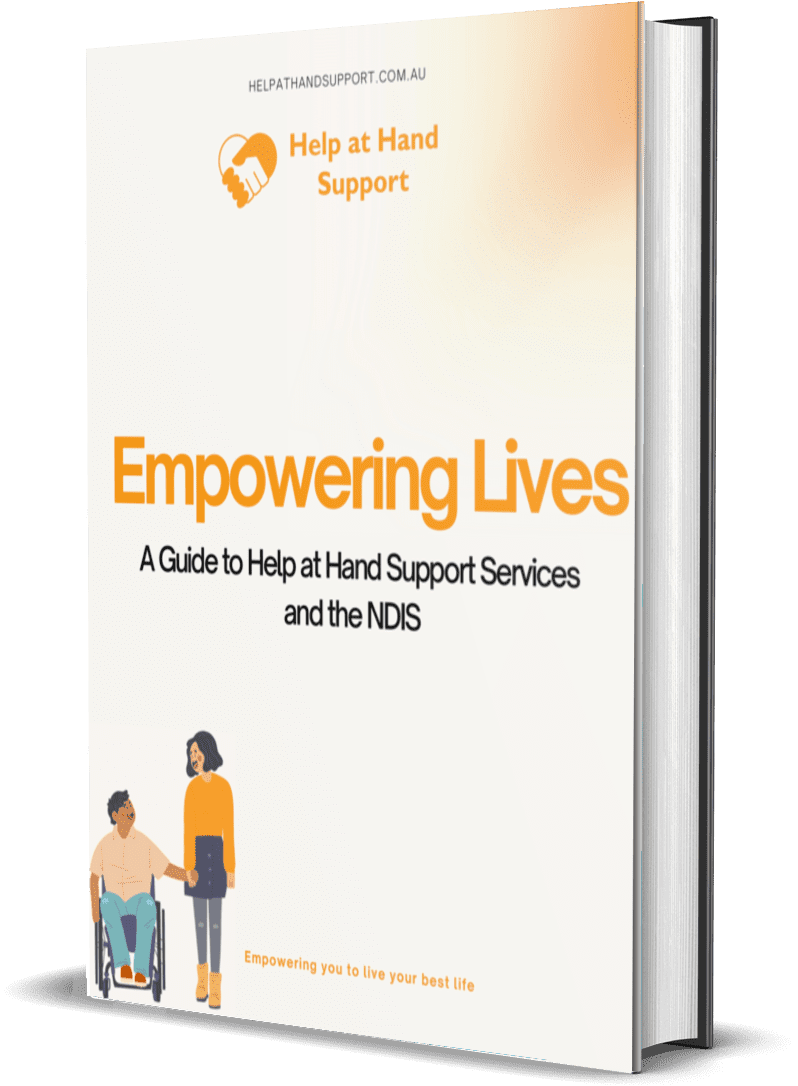Supported Independent Living – SIL. Let’s break it down!
SIL, SDA*, STA*, MTA*, ILO*…..the list of acronyms just goes on and on when you live and or work in the NDIS space!
It can be hard to remember what the acronyms stand for and even harder to decipher the definitions of each one and what they mean to your support.
So, let’s break this down! This article we will look at SIL: Supported Independent Living
What is Supported Independent Living (SIL)?
SIL is one type of home and living support funded by the NDIS.
SIL is for people with higher support needs, who need some level of help at home all the time, for example – throughout the day, 7 days a week. This includes overnight support.
This support could be help or supervision with daily tasks such as preparing and cooking meals and personal care, like showering and getting dressed.
SIL funding is to help you with day-to-day tasks around your own home with the goal of increasing your independence while learning and building new skills.
The SIL funding you receive pays for a support person to assist with your daily tasks and it is focused on people who need support with tasks for most of the day.
It is best suited to people with a disability who have higher support needs.
Supported independent living is usually funded when you live with other participants and share supports with them. SIL happens in your home – usually in a home you share with other NDIS participants.

You can also get supported independent living if you live on your own, but there might be other home and living supports that are better suited to you and your individual needs and situation.
Most participants who get SIL funding live with housemates who also have SIL funding. Thus SIL support is also a way to be able to live an independent life while forming bonds with other housemates.
You cannot use SIL funding to pay for rent or groceries.
How do I get SIL funding in my plan?
The process to get Supported Independent Living funding is a bit different compared to other NDIS supports. You will need to provide the NDIS with a Roster of Care document as we detail below.
How can a Support Coordinator help me with SIL?
A support coordinator can help you find SIL service providers that will suit your needs and circumstances and can also help you to find out how much services cost.
How do I know which SIL provider to choose?
You can ask many different people for information including your NDIA planner, Local Area Coordinator (LAC), and Support Coordinator.
You can also look up the providers website, make an appointment to ask them questions before you choose them and of course, ask trusted people for their advice.
You can also use the NDIS’ myplace portal to search for SIL providers.
What is a Roster of Care?
Once you have chosen you SIL provider, they will write a Roster of Care for you.
This is a document your SIL provider will use to work out what supports you need during the week, broken down into 30-min blocks.
This will then help your SIL provider workout how much funding will be required for your SIL supports.
You will have to sign the Roster of Care, but ONLY if/when you are happy with it and getting the rights supports you need.
Once the NDIS has received and approved your Roster of Care, you will get the SIL funding in your plan. Your Roster of Care should may include the following information:
- The types of support you’ll be able to receive
- The amount of support hours per week you will get
- The ratio of support, that is how many disability support workers will be providing your support along with how many participants you’ll share this support with (e.g. a 1:2 ratio means you have one support worker for every two participants, including yourself)
- Details of the property where you’ll receive the SIL support
- Your desired outcomes
What is a Service Agreement?
This is a written plan, like a contract, between your SIL service provider and yourself. It outlines the supports you will receive, how your support provider will give them to you and the costs of those supports.
It may also include how long the service agreement goes for, how to change your service agreement and what to do if something goes wrong or you have a problem.
While it’s not mandatory to have a Service Agreement when you use a SIL service provider, it can be very useful for the above reasons.
What is the difference between SIL & SDA?
Now, let’s get back to those tricky acronyms shall we?
SDA – refers to Specialist Disability Accommodation, that is a purpose-built accommodation dwelling itself whereas Supported Independent Living – SIL refers to the support service you might require while living in your SDA.

SDA and SIL are separate under the NDIS.
SIL is not dependent on where you live. You can receive SIL support in your own home, a private rental or a SIL home shared with others.
You may, in addition to SIL, also be funded for SDA – Specialist Disability Accommodation, which means you’ll be able to move into an SDA home or apartment and receive your SIL supports in the same dwelling.
What do I do now?
So now that you know more about SIL, what it stands for, what situations it is intended for and the process and documentation required to get SIL funding, what’s next?
Well, hopefully this article has empowered you to understand and potentially pursue Supported Independent Living options if that is right for you.
However, we don’t want you to have to navigate this process on your own – contact Help at Hand Support on 1300 822 190 and we will guide and support you throughout the whole process. Our team of care experts are available to answer any questions and concerns you may have
ACRONYMS:
*SDA: Specialist Disability Accommodation
*STA: Short-term accommodation
*MTA: Medium-term accommodation
*ILO: Independent Living Options
Check out more from our Blog
Book A Care Consult
We will be in contact with you shortly







